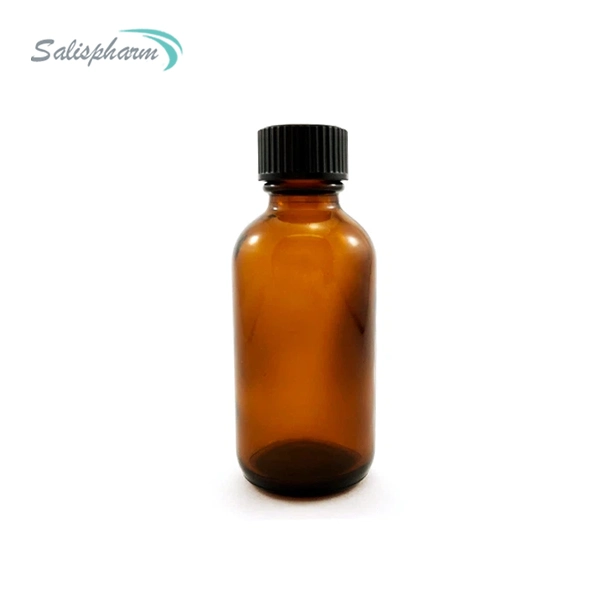Betahistine, an analog of histamine, is a medication primarily used to treat vertigo and symptoms associated with Ménière's disease. It is available in various forms, including tablets and powder. While betahistine is generally considered safe, it's crucial to be aware of the potential interactions it may have with other drugs. In this blog post, we'll explore what medications should not be taken with betahistine and the reasons behind these precautions.
What is Betahistine Powder and How Does it Work?
Betahistine powder is a highly concentrated form of the active ingredient betahistine hydrochloride. It is used in the treatment of various vestibular disorders, such as Ménière's disease, vertigo, and tinnitus. The exact mechanism of action is not fully understood, but it is believed to improve blood flow in the inner ear and reduce the pressure within the labyrinth, thereby alleviating symptoms.
Betahistine is often prescribed as a first-line treatment for vertigo and Ménière's disease due to its efficacy and relatively mild side effects. However, like any medication, it can interact with certain drugs, leading to potential adverse effects or diminished therapeutic effects. It's essential to inform your healthcare provider about all the medications you're taking, including over-the-counter drugs and supplements, to ensure safe and effective treatment.
Can Betahistine Interact with Other Medications?
Yes, betahistine can interact with various medications, and it's crucial to exercise caution when taking it in combination with other drugs. Some of the potential interactions include:
1. Antihistamines: Betahistine may enhance the effects of antihistamines, leading to increased sedation and drowsiness. It's recommended to avoid taking betahistine with antihistamines unless advised by a healthcare professional.
2. Monoamine Oxidase Inhibitors (MAOIs): Betahistine should not be taken with MAOIs, as it may increase the risk of adverse effects, such as hypertensive crisis (a sudden and dangerous increase in blood pressure).
3. Antidepressants: Certain antidepressants, such as selective serotonin reuptake inhibitors (SSRIs) and tricyclic antidepressants, may interact with betahistine powder, potentially leading to increased side effects or reduced effectiveness of either medication.
4. Antipsychotics: Betahistine may enhance the effects of antipsychotic medications, leading to increased sedation and other side effects.
5. Blood Pressure Medications: Betahistine can potentially interact with certain blood pressure medications, such as diuretics and angiotensin-converting enzyme (ACE) inhibitors, leading to changes in blood pressure or other adverse effects.
It's important to note that this is not an exhaustive list, and other medications may also interact with betahistine. It's always advisable to consult with a healthcare professional before starting any new medication or making changes to your existing treatment regimen.
In addition to the aforementioned drug interactions, there are several other factors that can influence the safety and effectiveness of betahistine therapy. For instance, certain medical conditions, such as liver or kidney disease, may affect the way the body metabolizes and eliminates betahistine, potentially increasing the risk of adverse effects or altering the drug's therapeutic efficacy.
Furthermore, age can play a role in how betahistine is tolerated and processed by the body. Older adults may be more susceptible to certain side effects or may require dosage adjustments due to changes in liver and kidney function that occur with aging.
It's also important to note that betahistine may interact with certain foods or beverages. For example, consuming large amounts of caffeine or alcohol while taking betahistine powder may increase the risk of side effects or diminish the drug's effectiveness.
What Are the Potential Side Effects of Mixing Betahistine with Other Drugs?
Mixing betahistine with certain medications can increase the risk of side effects or reduce the effectiveness of the drugs involved. Some potential side effects of mixing betahistine with other drugs include:
1. Increased Sedation and Drowsiness: When betahistine is combined with sedating medications, such as antihistamines or certain antidepressants, it can lead to excessive sedation and drowsiness, which can impair cognitive function and increase the risk of accidents.
2. Cardiovascular Effects: Betahistine can potentially interact with medications that affect blood pressure, heart rate, or cardiac function. This can lead to changes in blood pressure, irregular heartbeat, or other cardiovascular complications.
3. Central Nervous System (CNS) Effects: Betahistine can enhance the effects of certain medications that act on the CNS, such as antipsychotics or certain antidepressants. This can lead to increased side effects like dizziness, confusion, or tremors.
4. Gastrointestinal Effects: Some medications may increase the risk of gastrointestinal side effects when taken with betahistine, such as nausea, vomiting, or abdominal discomfort.
5. Reduced Effectiveness: In some cases, the combination of betahistine and certain medications may reduce the effectiveness of either drug, leading to suboptimal treatment outcomes.
It's crucial to closely monitor for any adverse effects when taking betahistine powder in combination with other medications. If you experience any concerning symptoms, promptly consult your healthcare provider for guidance and potential adjustments to your treatment plan.
Managing Betahistine Interactions: Best Practices
To ensure the safe and effective use of betahistine, it's essential to follow some best practices when taking this medication:
1. Disclose All Medications: Always inform your healthcare provider about all the medications, supplements, and herbal remedies you are taking. This information is crucial for identifying potential interactions and making necessary adjustments to your treatment plan.
2. Follow Dosage Instructions: Strictly follow the dosage instructions provided by your healthcare provider. Do not adjust the dose or frequency of betahistine without consulting your doctor, as this can increase the risk of side effects or diminish the drug's effectiveness.
3. Monitor for Side Effects: Be aware of the potential side effects associated with betahistine and any other medications you're taking. If you experience any concerning symptoms, such as dizziness, headaches, or gastrointestinal issues, promptly report them to your healthcare provider.
4. Timing of Doses: In some cases, adjusting the timing of doses for betahistine and other medications may help minimize interactions. Your healthcare provider may recommend taking the drugs at different times of the day to reduce the risk of adverse effects.
5. Regular Follow-ups: Attend regular follow-up appointments with your healthcare provider to monitor the effectiveness of your treatment and address any potential issues or concerns related to medication interactions.
6. Seek Professional Advice: Never stop taking betahistine powder or any other prescribed medication without first consulting your healthcare provider. Sudden discontinuation of certain medications can lead to adverse effects or a worsening of your condition.
By following these best practices and maintaining open communication with your healthcare provider, you can help ensure the safe and effective use of betahistine while minimizing the risk of potentially harmful drug interactions.
If you are also interested in this product and want to know more product details, or want to know about other related products, please feel free to contact sasha_slsbio@aliyun.com.
References:
1. "Betahistine: Drug Information" - Drugs.com
2. "Betahistine Hydrochloride Monograph" - Drugs.com
3. "Betahistine: An Overview" - MedlinePlus
4. "Drug Interactions with Betahistine" - RxList
5. "Betahistine: Precautions and Side Effects" - WebMD
6. "Betahistine Interactions" - Drugs.com
7. "Betahistine: MedlinePlus Drug Information" - MedlinePlus
8. "Betahistine: Interactions with Other Drugs" - RxList
9. "Betahistine Drug Interactions" - WebMD
10. "Pharmacokinetic Interactions of Betahistine" - PubMed







